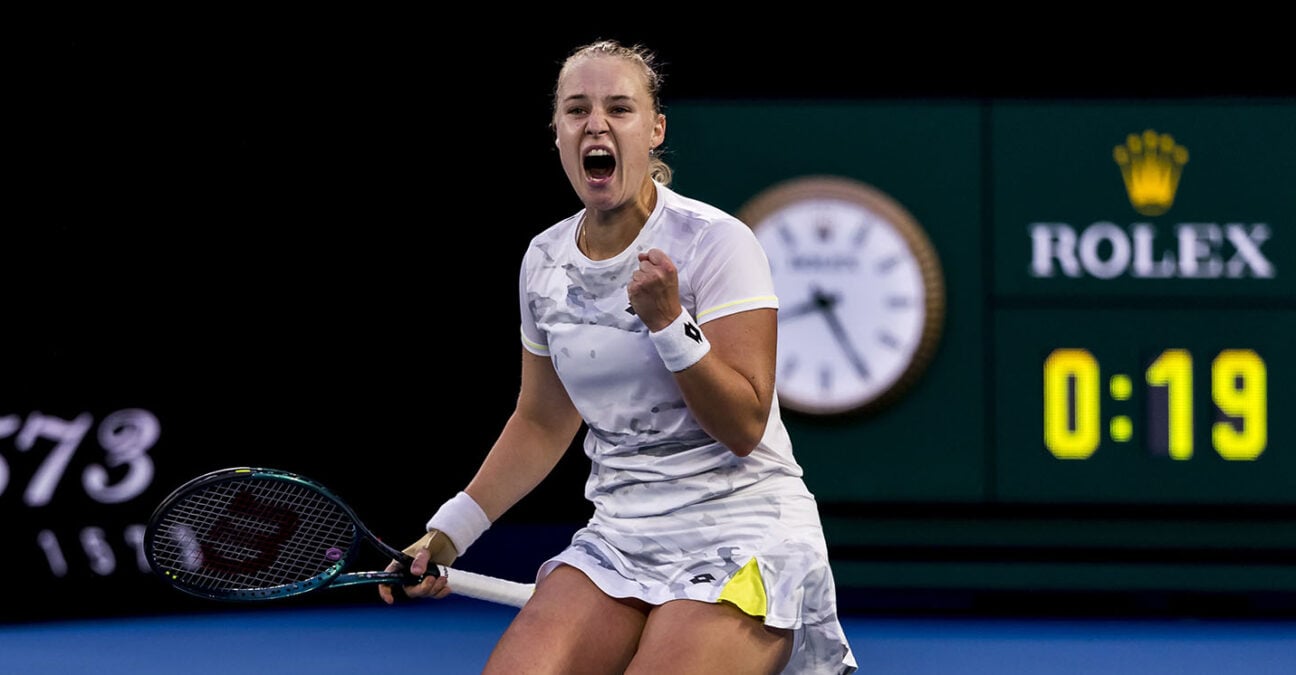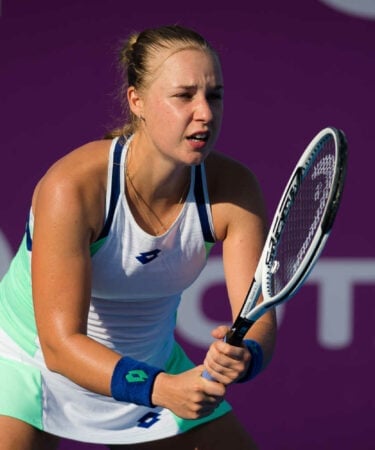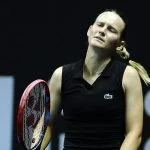“The energy was crazy” – Anna Blinkova talks about coming through the longest tiebreak in Grand Slam history
Anna Blinkova and Elena Rybakina created the most memorable moment of week one of the 2024 Australian Open on Thursday night. The Russian then sat down and told the world how it felt.
 Anna Blinkova 2024 Australian Open Icon SMI / Panoramic
Anna Blinkova 2024 Australian Open Icon SMI / Panoramic
At 42 points, it became the longest tiebreak in Grand Slam history, surpassing the 38-point epic between Lesia Tsurenko and Ana Bogdan at Wimbledon in 2023 and Jo-Wilfried Tsonga and Andy Roddick’s barnburner at the 2007 Australian Open.
And let us not forget the sacred tiebreak, played between John McEnroe and Bjorn Borg in the 1980 Wimbledon final – 34 points, 18-16 McEnroe.
So, what was it like to be a part of such a delightful monstrosity, one that saw Blinkova save six match points and fail to convert on nine of her own?
What was it like to stand tall in a historical moment, the attention of the tennis world focusing on you as you navigated the vicissitudes and rose above the fray?
“The energy was crazy,” the 22-year-old deadpanned in her post-match press conference. “I enjoyed it a lot.”
57th-ranked Blinkova converted her 10th match point, ending one of the most memorable – and draw-shattering – Grand Slam upsets in recent memory, and afterwards she admitted that it wasn’t always easy to stay positive as she tried to keep her edge against the No.3-seed.
“It was difficult to always stay positive,” she said. “I had a lot of great moments, but I also had many frustrating moments, for example, all the match points that I couldn’t convert. I was doing a lot of mental work, a lot of self-talk to just stay positive and telling myself that I still can win the match until the very end.”
“My hand was shaking”
Blinkova said she couldn’t help making mistakes, she was simply too nervous as the incredible tiebreak that would never end neared it’s conclusion.
“Any point that I win is a good point. Any shot that I put in the court is a good shot. That’s what I tell myself. I’ve been doing a lot of mental work to not panic, to stay calm, to breathe, to not be frustrated after mistakes.
Anna Blinkova
“When I had opportunities, when I had match points, I was rushing,” she said. “My hand was shaking. I tried to be aggressive, but I was making a lot of mistakes. Finally I was able to stay solid. In the last match point, I remember the last match point that I converted, I was on defense. I think I hit two backhands very short but very tough backhands. I’m super happy that I put them in the court.”
Courage was key
When asked to give one word to describe her victory, Blinkova was quick to respond.
“If I have to say one word, I would say ‘courage’,” she said. “It took me a lot of courage. I was going for it. I was trying to find the balance between being aggressive and being solid, not rushing, but trying to make her play one more shot, one more shot.”
Out with perfection, in with acceptance
25-year-old Blinkova later explained that wisdom gained over her years on tour also helped her get through the harrowing contest. She said that her newfound ability to live with mistakes enabled her to stay positive in the most difficult moments against Rybakina.
“I used to be a perfectionist,” she said. “I used to never be happy with how I play. For example, if I win the point not in the way that I want, not with a beautiful shot, I was not happy with that.
“Any point that I win is a good point. Any shot that I put in the court is a good shot. That’s what I tell myself. I’ve been doing a lot of mental work to not panic, to stay calm, to breathe, to not be frustrated after mistakes.
“I always tell myself that everybody does mistakes, it’s normal. As soon as the intention is good, as soon as my intention is to put the ball in the court, that’s a good shot. I just have to keep doing it.”














